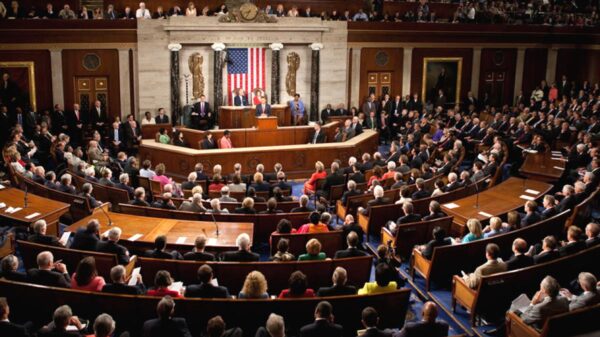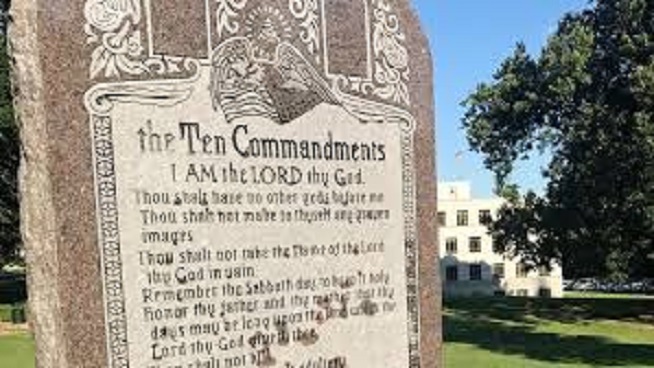Louisiana has become the first U.S. state to mandate that every public school classroom, from elementary to university level, must display a poster of the Ten Commandments. Governor Jeff Landry signed the Republican-backed measure into law on Wednesday, describing the commandments as “the foundational documents of our state and national government.”
The law is anticipated to face legal challenges from civil rights groups who argue it violates the separation between church and state, enshrined in the First Amendment to the U.S. Constitution, specifically the so-called Establishment Clause. This clause states: “Congress shall make no law respecting an establishment of religion, or prohibiting the free exercise thereof.”
Under the new state law, each poster must feature the Ten Commandments in “large, easily readable font” on an 11 inches by 14 inches (28cm by 35.5cm) display, with the commandments being “the central focus.” Additionally, the posters will include a four-paragraph “context statement” explaining the historical significance of the commandments in American public education.
By 2025, all classrooms receiving state funding must display these posters, although the state will not provide funding for the posters themselves.
Similar measures have recently been proposed in other Republican-led states, including Texas, Oklahoma, and Utah. The issue of displaying the Ten Commandments in public buildings has been a contentious legal matter, with numerous cases involving schools, courthouses, and police stations.
In 1980, the U.S. Supreme Court struck down a similar Kentucky law requiring the Ten Commandments to be displayed in elementary and high schools. In a 5-4 decision, the court ruled that the mandate “had no secular legislative purpose” and was “plainly religious in nature.” The court emphasised that the Ten Commandments include religious directives, such as observing the Sabbath and worshipping God, in addition to secular principles like prohibitions against killing and stealing.
As Louisiana moves forward with this legislation, it is expected to ignite significant debate and legal scrutiny over the balance between religious expression and constitutional principles in public education.
![]()





























































